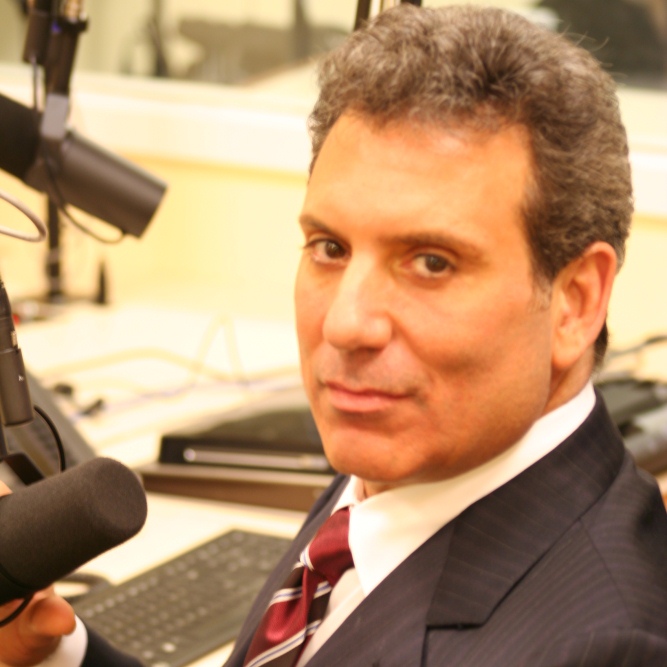Exactly one week ago, The Project on Government Oversight (POGO) released its second report on the Revolving Door at the Securities and Exchange Commission. POGO found that former SEC employees had testified on behalf of the financial industry hundreds of times leading up to (and after) the financial crisis of 2008. I felt the release of this report was the perfect time to revisit the groundbreaking interview I conducted with Michael Smallberg, an investigator with POGO, during which we discussed the Revolving Door and its implications for effective regulation in the financial industry.
Last week, I posted part one of the transcript of this interview; Here’s part two:
Phil Cannella: In your opinion, after 78 years of the SEC being in business, what’s taking so long for them to put procedures in place to protect people?
Michael Smallberg: I think let’s get back to the point you made before about Congress’s role in making sure that the SEC has enough money to do its job and maybe giving the SEC more authority to after people who violate the law.
Phil Cannella: So it does go back to Congress. And that brings me to naked shorting. We all know that Martha Stewart did 18 months because she tried to conserve her $60,000 because she heard the corporation was going into bankruptcy. It’s known as insider trading, which could be naked short selling, but she didn’t. Now what do you think of Congressman who are voted into office to protect their constituents, but their constituents can’t short the market with insider information but a Congressman can. And do you think it’s possible that there was a Congressman who shorted GM because they knew it was going into bankruptcy and benefited, and do you think it’s very possible that the very Congressman who did that could have a constituent on the other side of that process known as bankruptcy who depending on those GM bonds, how is it possible that you can take an oath and then do that?
Michael Smallberg: I think I mentioned the study before that showed that the portfolios of many members of Congress consistently outperform the market and those of regular investors. There are very serious concerns that members of Congress do regularly come into contact very sensitive market moving information and there is a serious threat that they can sometimes trade on that information.
Phil Cannella: Don’t you think that’s the systemic problem right there? I don’t think the systemic problem is within the SEC; I think the systemic problem is within Congress and how they’re supposed to represent the everyday investor, but they can do what the everyday investor can’t do. They can sneak behind the lines, get inside information and benefit from it. Isn’t that the systemic problem? And would you like help from a consumer advocacy firm that would help you investigate Congress?
Michael Smallberg: I think it’s absolutely a huge problem. I know there’s been legislation introduced that would seek to tamper down on that issue but we’d always be open to getting more information on this and exploring some ideas for solving this problem. Because it’s deeply unfair if people in power are getting access to information that the rest of us don’t have and trading on that information to the detriment of the rest of us. That’s deeply unfair and we absolutely want to explore solutions to that problem.
Phil Cannella: Deeply unfair I think, in my opinion, is putting it mildly.
Michael Smallberg: It’s crazy and I’ll tell you where it’s been a big problem recently is at the regulatory level. This is often where corporations can come in and really shape the rules in a way that’s really going to benefit themselves and their industry and again I think this is where sometimes the revolving door can really serve to undermine the public interest because you’ll have people who spend time at agencies like the SEC gain the experience of how the regulations and the bureaucracies work there and then take that knowledge and will go to represent industry groups who are trying to water down regulations. So this is a big problem because there is a lot of criticism of the Dodd-Frank act and places where it fell short but I think there were some provisions in there that could potentially be very beneficial but the problem is that when it gets to the agency level the power of a lot of the large financial institutions is so dominant that I worry often that it squeezes out the interests of public investors and consumers and taxpayers and others. It’s a huge problem and it’s a huge cultural problem within this town. Money controls a lot of our political processes and outcomes and there has to be fundamental change before we start seeing some better policies made.
Bob Bumbera: Michael, this is Bob Bumbera. You mentioned that fundamental change needs to occur within the financial industry. Do you think the Occupy movement is the spark for that; do you think that that can lead to fundamental change in your opinion?
Michael Smallberg: I think they were asking some very important questions, for example, why haven’t there been more executives going to jail as a result of their involvement in a lot of the fraudulent practices that really sealed the financial crises and I think those are critical questions right now that we need to be asking and I think that when you start to look at some of the trends in recent years both in Congress and also in the agencies like the SEC and the Department of Justice that are supposed to be prosecuting these matters I think you’ll see some really serious problems in how they’ve been trying to enforce these things. The SEC has a trend of settling with companies where the companies don’t admit any wrongdoing and there aren’t any charges for the executives. So I think this is leaving a lot of members of the public and the Occupy movement feeling like there hasn’t been justice for a lot of the crimes that really brought the economy to the brink of collapse.
In the next few days, I will continue publishing excerpts from this interview, keep checking back for more of my groundbreaking interview with Michael Smallberg of The Project on Government Oversight.
Portions of this interview not pertaining to the main conversation have been edited to preserve the proper flow of ideas. For the full conversation, please refer to the audio recording, taken from the Crash Proof Retirement Show®






Pingback: A Transcript of Phil Cannella's Interview with Michael Smallberg of POGO
Pingback: A Transcript of Phil Cannella’s Interview with Michael Smallberg of POGO (Part 3)